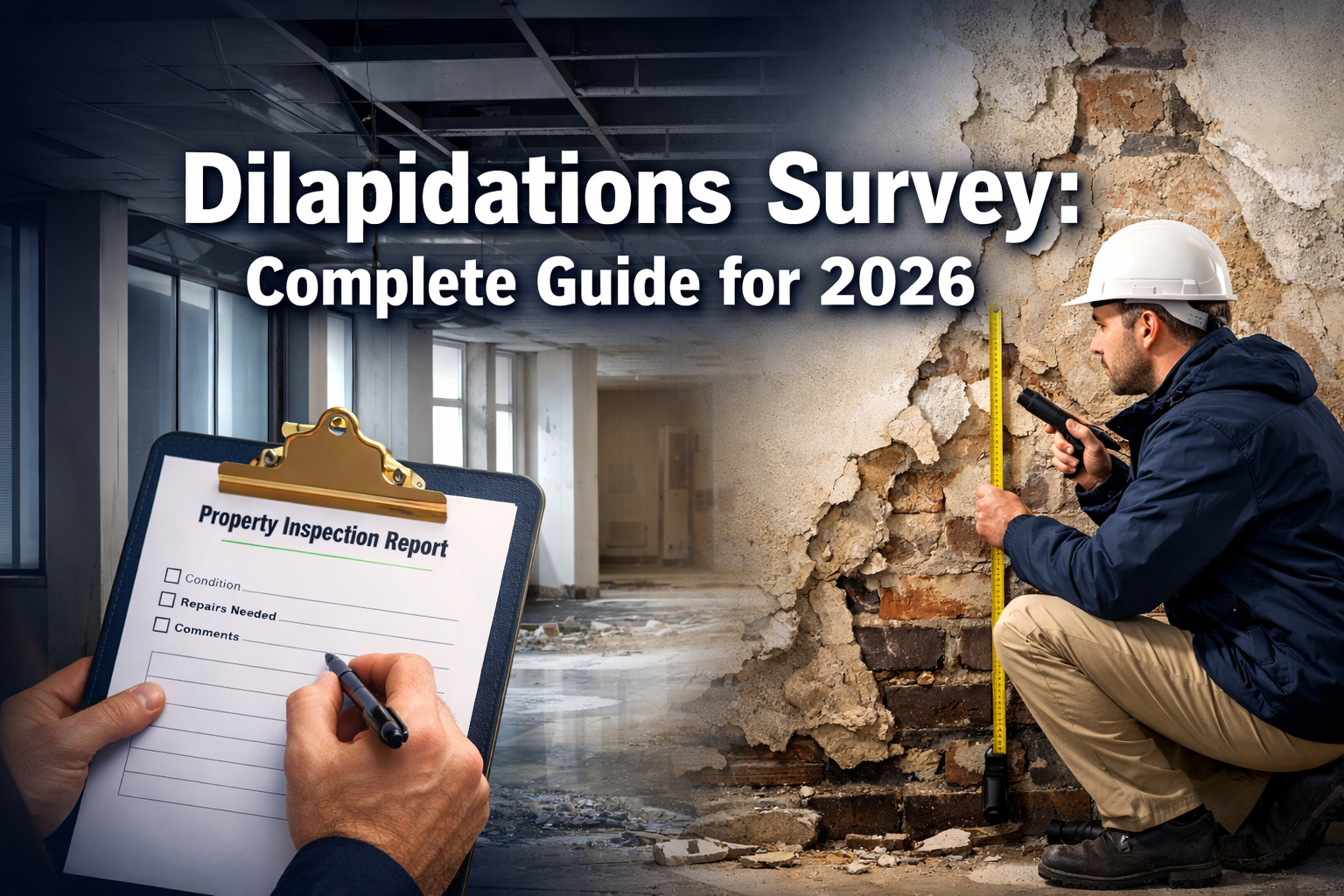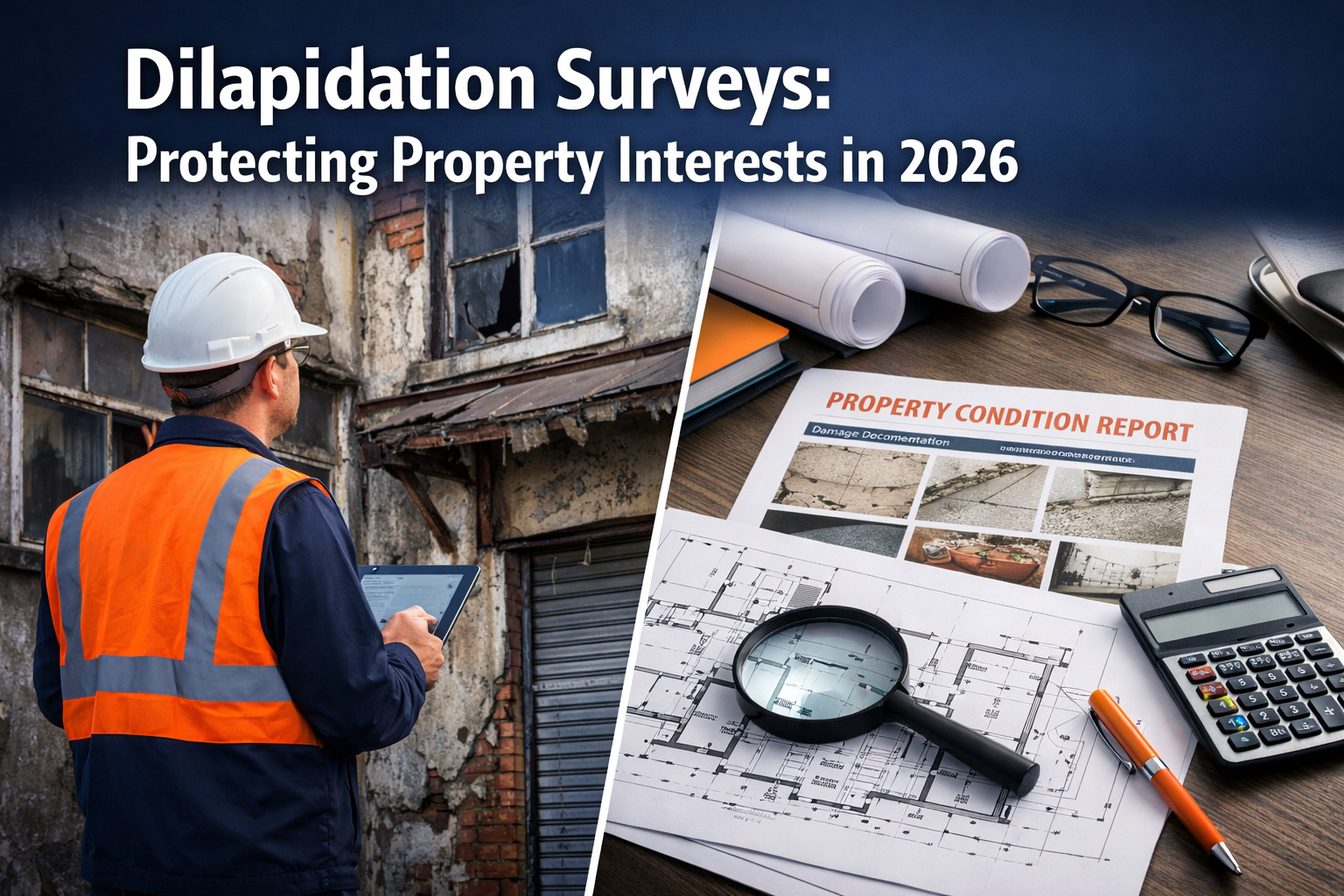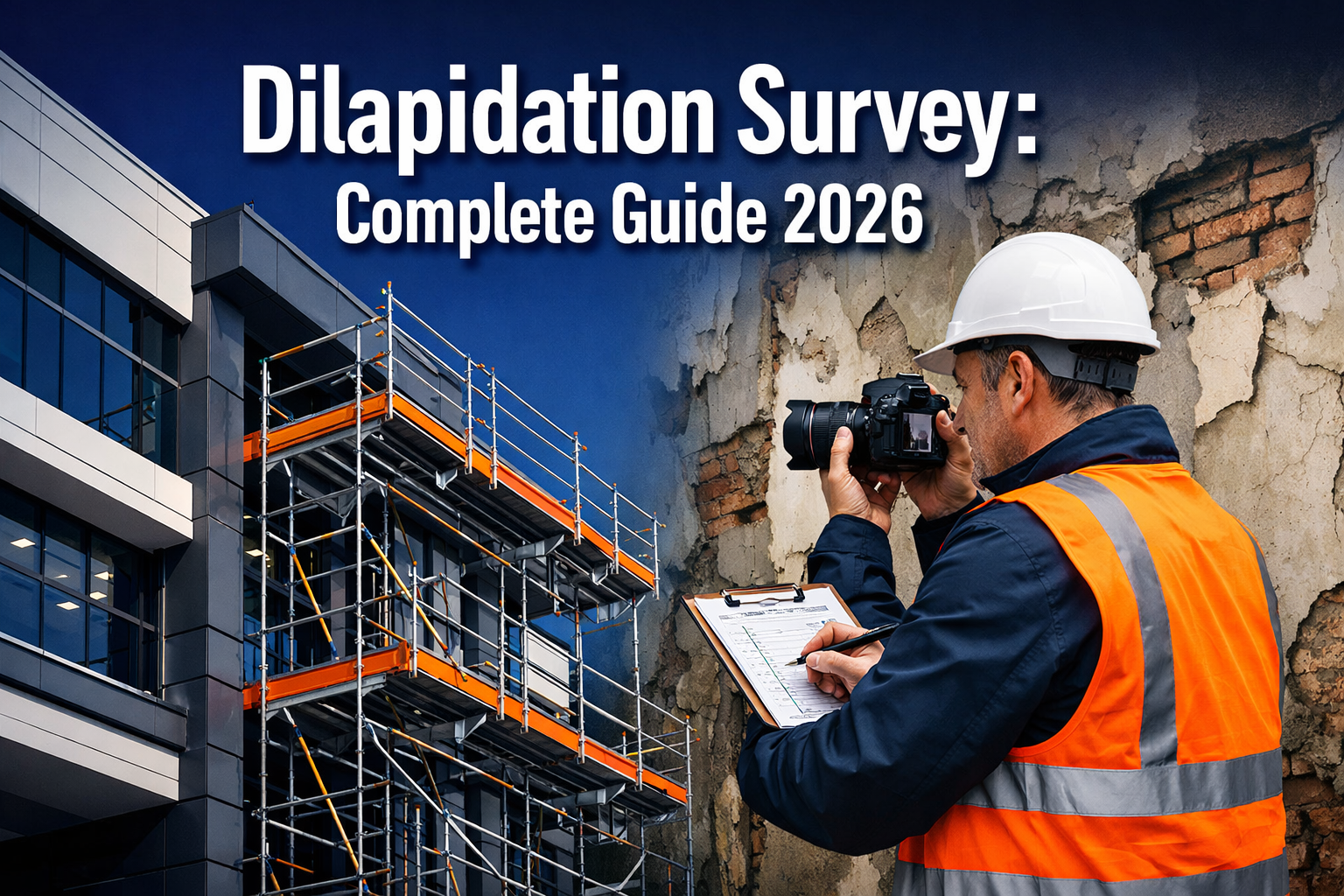- Home
- Choosing the Right Property Survey
Residential surveys vary widely in price and purpose. As purchasing a home in Canterbury is an expensive endeavour, it makes sense to spend your survey budget where you will get the most benefit—right at the level of survey most appropriate to your needs. Part of this decision-making process is knowing what the types of surveys are and what they do.
The Snagging List Report
A Snagging List Report is often commissioned for newly built or newly refurbished residential properties.
- Detailed: the report carries a lot of information, but it’s mostly concerned with superficial defects or the lack of them.
- Lengthy: Snagging list reports are typically quite long; they list the defects, many of which are minor.
- Pragmatic: the developer/builder can use the report to understand exactly what needs finishing.
- Cost-saving: if the defects are not made good, you can deduct their value against the asking price.
The purpose of the snagging report is to set out what needs finishing to achieve final completion in the building project, but it will not assess more serious defects for which a building survey is more suitable.

Structural Engineer Report
A structural engineer report is different from a structural survey and a full building survey because it involves an engineer who focuses on a specific part of the property structure. This can be helpful for the following types of harmful situations:
- Movement: if the property is suffering from subsidence, a report like this can help identify possible remedial options.
- Underpinning: if you’re thinking about underpinning the floor of the property (not a good idea unless absolutely necessary), a report like this can help identify possible underpinning methodologies.
- Removing Loadbearing Walls: if you’re thinking about making any major structural alterations to the property, this sort of report can help identify possible ways of doing so safely.
- Extending: if you’re adding any major structure to the property, an engineer’s report can help identify any possible negative impacts on the existing structure.
- Solar: if you’re thinking about placing solar panels on the roof, you will need to check whether the roof can support these.
- Basement and Loft conversion: check the structural integrity of your basement/loft prior to converting.
Level 1 Condition Report
This basic report is often used in the context of the Party Wall Act. It usually covers a limited number of specific areas in the property as may be affected by neighbouring works. Here are the most important parts:
- Applicability: the report is generally meant for properties with no obvious flaws and where you want to record the condition of a certain part, before a neighbour begins some works.
- Defects: although it points out problems, it does not say how to fix them.
- Tabulated: often made into a table (area in the property, element construction and condition)
- Visual: involves a surface-only observation (i.e. non-invasive).
- No Advice: the appraisal will not include any way to solve defects or the cost involved.
- Efficiency: it generally only requires an hour to complete the inspection.
- Lowest cost: this is for a survey that requires the least money.
A straightforward RICS Condition Report is usually used when there are not many problems and the advice needed is basic, often under the Party Wall Act.
Level 2 RICS Homebuyer Survey
The RICS Homebuyer report is one of the most widely used types of home survey. For many people, it represents their preferred choice when it comes to commissioning a survey for a standard residential property. It is a clear and direct document, which serves as a decent appraisal for the property one is considering purchasing. The RICS Home Buyer report has several key components that make it user-friendly and informative. Those parts can be summarised as follows:
- Mid-range: it has a moderate level of inspection that is generally suitable for a standard property in good condition.
- Traffic light system: the report uses a “traffic light” format that indicates the condition of the property (red, amber, green).
- Main issues: the Report focuses on issues with the property that affect its value, and it also assesses the significance of those issues.
- Risk Assessment: search for any dangers connected to the building and its surroundings.
- Visual: the study depends solely on surface inspections.
- Accessible Areas: only inspects the parts of the property that are easy to access.
- Market Value: this section has the estimated market value and the insurance rebuild cost.
- Maintenance Care: guidelines on what to do when maintenance is required and how to find the right contractors.
For buying a conveniently constructed and maintained house, flat or bungalow, the RICS Level 2 HomeBuyer Report could help you save money. It gives you clearer details about the property for you and your lawyer to check.
Full Building Survey
The most thorough and reliable survey you can get for a property is the RICS Level 3 Building Survey—also known as a “structural survey.”
A Level 3 survey is the most extensive and detailed survey available today. It is very much appropriate for a buyer of an older, larger, or something even less conventional.
The survey is in effect a ‘tailored’ report, as it covers virtually everything you would want an inspector to check for a full home inspection in a property securing a mortgage as follows:
- Applicability: a full building survey is best chosen for properties that are old, large or not built to standard designs.
- Bespoke: you might want a report made just for your insurance policy or to address certain issues.
- Thorough Inspection: checks of all areas on the inside and the outside of the house. The surveyor analyses foundations, roofs, walls and floors and also looks at non-structural components such as windows and doors.
- Complete inspection: looking at every part of the property the surveyor is allowed to access.
- Uncovering Defects: it can detect significant damage as well as services like boiler, heating and hot water, etc.
- Advice concerning repairs: professionals will recommend repairs or maintenance for possible safety or hazardous problems.
- Estimating Costs: being able to notice many errors helps you estimate how much they will cost to repair.
- Renovation: useful when doing construction or renovation work, including removing walls, excavating the basement, adding on extra rooms or converting a loft.
- Value and Rebuild Costs: although not included, the building survey can give information that will help a valuation expert give you an estimate of the market price and rebuilding price if needed.
- Yearly Tips: advice on how to look after your house each year.
You also get what you pay for. A Level 3 survey is not cheap; you might be looking at around £800 minimum cost, but many clients save on this by identifying problems early.
Which property survey is necessary?
Most property purchasers opt for the RICS Level 3 Building Survey. Though it is the most expensive of the three different types of condition survey, it is packed with a tremendous amount of detail about the property. That’s why nearly 80 percent of the people who buy a flat or house in the UK make use of it. It is almost certainly the one to have if you are serious about your due diligence.
Is a RICS Homebuyers Survey worthwhile for a Property in Canterbury?
The property market in Canterbury is complex and that’s why we feel it’s important to offer potential buyers—as well as current owners—a detailed, insight-filled look at the market so that you might come to understand it better.
The market is not easy to fathom.Decisions taken without full knowledge could easily end up costing you thousands, if not tens of thousands, of pounds. That’s why we think it worth your while to consider the potential of the RICS HomeBuyer Report—preferably the more in-depth RICS Building Survey—that we organise.
The HomeBuyer Report is the most rudimentary of the building surveys. Our panel of surveyors also conducts RICS Level 3 Surveys and Roof Surveys. These are more sophisticated and serviceable; whereas the RICS HomeBuyer Report is fairly standard.
Why select our services?
We boast a group of locally renowned surveyors in Canterbury, all of whom are members of CIOB, RPSA and/or RICS and have extensive experience in performing residential property surveys. The surveyors provide a number of different detailed services, all aimed at ascertaining the condition of a property and whether any issues or problems exist that could affect its value. One of those services is a HomeBuyer Survey and Valuation.
Qualification/accreditation: the Canterbury Surveyors team is composed of qualified and/or experienced chartered building surveyors; many of whom are accredited by RICS, CIOB and/or RPSA. The RICS is the biggest and most influential global professional body in surveying and related disciplines. It is based in the UK but has a worldwide reach, with over 100,000 members. Such regulatory bodies have high standards and integrity for which the surveying profession is respected.
Specialty: our survey panel delivers undiluted opinions on condition and value. They are experts in the kinds of unique and important factors that make a property in Canterbury different from, say, one in London. If something is wrong with a building, they will find it, and their job is to make sure that you know about any costly surprises before you complete. When you buy a property, it is really important to have a survey done before the purchase.
Clear: after the inspection, the report generated is straightforward, free of too much jargon, and thorough. It lays out in detail any defects unearthed during the examination, gives the kind of professional advice that is useful when dealing with a contractor, and can be used as ammunition to fire back at your prospective home seller when it comes time to revisit the negotiations.
Advice and support after the survey: your home inspector will not leave you confused after delivering the report. They will make themselves available for a post-survey discussion where you can go over with them what the report means and in what direction you should now proceed.
Cost-effectiveness: a HomeBuyer Report might seem a signficiant expenditure, but it can save you money in the long term. The report spotlights potential problems with a property so you can then either resolve them with the seller.
We use only reputable surveyors who, are professional in taking you through the HomeBuyers Survey process. Their guidance is especially important in the Canterbury property market.




